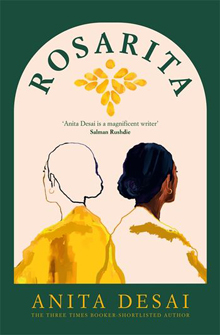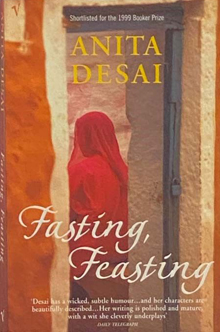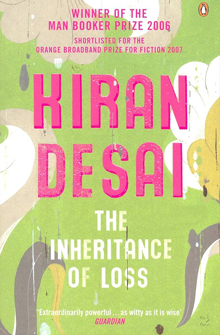It’s quite impressive to be producing novels as the age of 87, but that is what Indian writer Anita Desai has just done, with Rosarita, over 60 years since her first novel. In the intervening years, she has published 11 novels, three children’s books and several short story collections, including Games at Twilight.
 Rosarita sees Desai step a little away from her customary style, as it is written in the second person throughout, addressing the central character as ‘you’. It was a narrative mode that Desai wanted to try, but it also encourages a kind of detachment. As she says:
Rosarita sees Desai step a little away from her customary style, as it is written in the second person throughout, addressing the central character as ‘you’. It was a narrative mode that Desai wanted to try, but it also encourages a kind of detachment. As she says:
‘If you keep describing people as ‘you’, you are distancing yourself. In other words, not getting too involved’.
This separate observational stance is quite suitable for a novelist, who must be an observer, a note-taker. It also suits Desai, who, though she has lived in America for decades, still feels separate and foreign, and also feels that she no longer recognises India when she returns there. Desai has said herself that part of being a writer is:
‘always being apart… One is always an observer rather than a participant.’
Fasting Feasting
 That balance between India and the USA is at the heart of her novel Fasting, Feasting, which focuses on brother and sister Arun and Uma. Their traditional parents insist on a traditional feminine role for Uma, trying to find her a husband. Each attempt leads to a different kind of disaster and Uma remains restricted and unfulfilled. Arun, however, as the boy of the family, is expected to succeed academically and eventually wins a coveted place at an American University, moving to Massachusetts.
That balance between India and the USA is at the heart of her novel Fasting, Feasting, which focuses on brother and sister Arun and Uma. Their traditional parents insist on a traditional feminine role for Uma, trying to find her a husband. Each attempt leads to a different kind of disaster and Uma remains restricted and unfulfilled. Arun, however, as the boy of the family, is expected to succeed academically and eventually wins a coveted place at an American University, moving to Massachusetts.
The novel parallels the lives of the two siblings. While there is privation for Uma in the Indian ‘Fasting’ side of the book, there is an excess of opportunity on the American ‘Feasting’ side. However, Desai explores Arun’s detachment and unease with American life and particularly its food, easily obtained in huge amounts from supermarkets. The unease with American life is not restricted to Arun, as Desai also shows that Melania, the daughter of the family with whom Arun lives, is deeply psychologically distressed.
Fasting, Feasting is one of three of Desai’s novels to be nominated for the Booker Prize. Although it lost out to J.M. Coetzee’s Disgrace in 1999, it was exceptionally named as the runner up as the judges had been deeply divided between the two novels.
Daughter Kiran
 While Anita Desai has been nominated three times for the Booker but never won it, her daughter Kiran Desai was awarded the prize in 2006 for her second novel, The Inheritance of Loss. Like Fasting, Feasting, the action is split between India and America. The American side depicted is the underbelly, the world of illegal workers, particularly in the restaurant trade, as Biju, carrying his father’s hopes, works in appalling conditions to try to ‘make it’ in the States. He has travelled from Kalimpong, in Sikkim State in northern India, squeezed between Bhutan and Nepal. There Desai’s cast of characters cling to decayed colonial notions and pretensions in the face of the Ghorka insurgency.
While Anita Desai has been nominated three times for the Booker but never won it, her daughter Kiran Desai was awarded the prize in 2006 for her second novel, The Inheritance of Loss. Like Fasting, Feasting, the action is split between India and America. The American side depicted is the underbelly, the world of illegal workers, particularly in the restaurant trade, as Biju, carrying his father’s hopes, works in appalling conditions to try to ‘make it’ in the States. He has travelled from Kalimpong, in Sikkim State in northern India, squeezed between Bhutan and Nepal. There Desai’s cast of characters cling to decayed colonial notions and pretensions in the face of the Ghorka insurgency.
It’s a novel of sifting moods, tenderly romantic in its depiction of new love, and often whimsically comic, but has sudden jolts into absolute violence and horror. Yet while every character faces disappointment and loss, it ends with tentative optimism in the resilience of human spirit and relationships.
Further Reading
Review of Rosarita.
Interview with Anita Desai.
British Council profile of Anita Desai.
British Council profile of Kiran Desai.